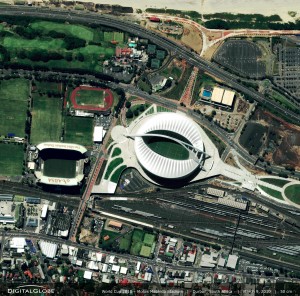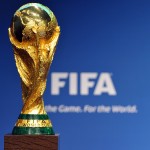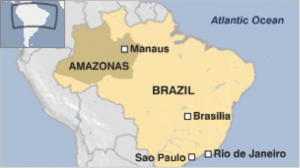In the article, “How South Africa can offer Brazil a World Cup lesson”, Geoffrey York offers his opinions regarding the financial decision making of World Cup host cities and questions the ethical behaviours of FIFA. In business, most decisions are made based on financial statements, and projection models. It is safe to assume quantitative decision-making skills are required prior to purchasing a stock, purchasing a business, applying for a loan, and even building a soccer stadium.
Why does the World Cup impair cities financial judgements?
There are multiple reasons why former World Cup host cities lose exponentially on stadiums that once graced the best footballers in the modern era. The first reason is simply due to FIFA and the standards they require. Soccer is the most played and most watched sport in the world. Therefore when a city is asked to host a World Cup there is nothing they won’t do to appease the regulations. For example, South Africa built a stadium complimenting Cape Town’s majestic waterfront real estate. The president of FIFA stated the viewers on television would rather see a water front then an impoverished, poverty stricken area. Furthermore, the stadium now sits unused due to high operation prices, and rusting due to the sea salt winds. In summary, FIFA requires certain standards that ethically do not make sense for host cities but due to the fear of losing the host city status they abide to the rules. In fact, it is interesting to see where the majority of profits from the world cup go. Intuitively, most would think the host city, however it is in fact FIFA, the non-profit organization. Therefore, is FIFA unethical and corrupt? To some extent, that is a valid topic of discussion, however, the host cities are the ones that make the final decision. For instance, Brazil the host of the 2014 World Cup built a world-class stadium in Manaus.
As illustrated by the photo to the right, Manaus is in the Amazonas. This means, the only possible way to get to the stadium was by boat up the amazon or automobile. Note there is no air travel and Manaus does not have a professional team. At this point Brazil should have seen red flags, as when the tournament is over that stadium will be completely under-utilized .

This photo illustrated how there are two large stadiums in close proximity. Fittingly, the slightly larger more visually appealing stadium was required for the World Cup
In conclusion, logical reasoning should back all business decisions that are made; however when the World Cup comes around these judgements are clouded. FIFA is at fault for their unethical business behaviour leaving host cities in ruins while they are left counting profits. Nonetheless, the host cities are also at fault because they should consider the long term impact of their decisions. This is a problem that will continually face World Cup host cities and unless the financial decision-making is altered, the World Cup will force cities into bankruptcy rather than celebrate international soccer.
Sources Used:
York, Geoffrey. “How South Africa Can Offer Brazil a World Cup Lesson.” Globe and Mail 8 June 2014: n. pag. Print. Click Here: For Link
Class 16 Finance 2 Notes:

